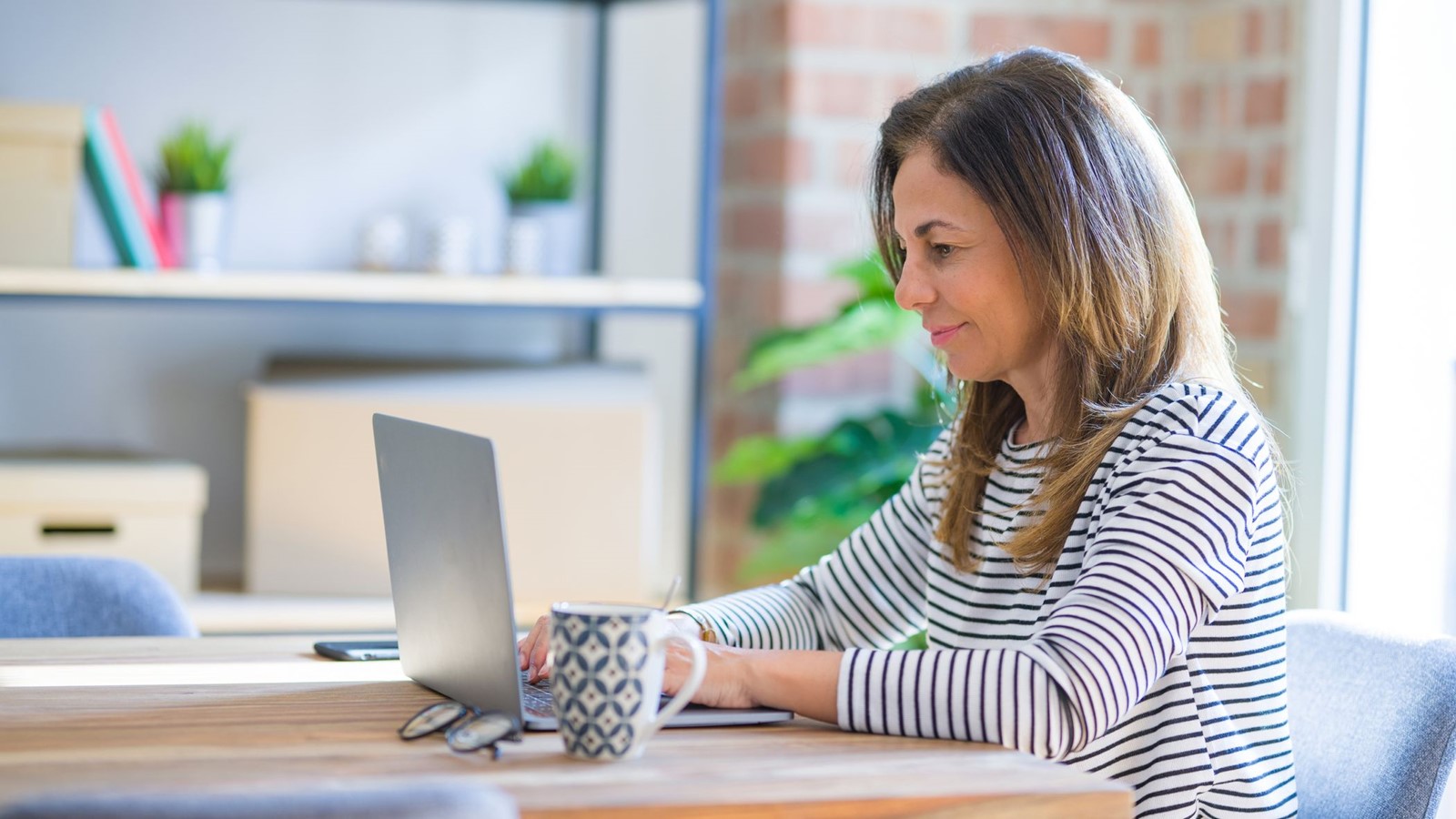Counselling is not just about face-to-face appointments. Many counsellors offer sessions through online platforms or appointments by phone (telephone).
Even though you’re not in the same room, the counsellor or psychotherapist can still help you to explore how you’re feeling, understand what you are going through and support you to make changes in your life if you need to.
Sometimes people choose online or phone counselling appointments because it’s easier for them to access or fits with their lifestyle or working hours better. It also means they’re not restricted to finding a therapist who is based near them.
The coronavirus pandemic led to an increase in therapists offering online or phone counselling. Many say they’ll continue working in this way in the future.
“Many people find online counselling useful as another way to express themselves,” says our member Rakhi Chand.
How do I know my therapist is qualified in online or phone counselling?
Take a look at their website or our Therapist directory listing to see whether they have detailed training or qualifications that are specific to online or phone (or telephone) counselling.
As well as choosing a counsellor who is a member of a body with an accredited register such as BACP, look out for registration with the Association of Counselling and Therapy Online (ACTO).
What to expect from phone counselling
Rakhi explains that when arranging phone counselling with a client, she ensures the conversation will be private and safe.
“I need the client to have a suitable and private space from which to take the call,” she says.
“You need a confidential and quiet space to speak from, where you won't be interrupted or overheard. And preferably not your bed!”
She also asks clients for an emergency name and contact number, as well as GP details.
Sometimes people meet their counsellor in person first for an assessment. Others prefer phone from the outset - for both assessment and talking through how it will work.
What to expect from online counselling
Online counselling is carried out via secure and encrypted web platforms. Just like phone counselling you'll need a private space to have the conversation.
Use a laptop, computer, or tablet if possible (and you may need to make sure that your device’s microphone and camera are working). Stabilise your device on a flat surface rather than holding it, for minimal disruption or distraction.
When you and your therapist are both connected by video link, you’ll probably spend a few minutes checking the camera position is ok and that you can both see and hear each other.
Your therapist will discuss how it’s going to work and should also ensure you know what to do if the connection is interrupted.
How can it help?
An important part of counselling is that you feel heard and understood. This is no different for face to face, online and phone counselling.
The sessions – however they are carried out – should offer you a safe space to talk about your feelings without judgment.
Your therapist will support you to become aware of what you feel and why you feel this way, and help you to understand what you can do about it.
What can online and phone counselling help with?
Online and phone counselling can help with many of the same issues as face to face counselling, such as anxiety, stress, depression, self-esteem and confidence issues, loss and family relationship problems. But it's not suitable for everyone.
“If you're feeling particularly unwell or desperate, it is better that you try to get some face to face support if possible. In case of emergency contact your GP or local Accident and Emergency service,” says Rakhi.
How do therapists maintain a strong connection or relationship with a client when it’s not face to face?
One of the most important things about counselling is the relationship you have with your therapist.
You may think that this is undermined when you’re not in the same room as your counsellor, or if you can’t see them. But Rakhi says there are things therapists do to help create that connection and build a relationship when it comes to phone sessions.
“I'm mindful of taking in as much information as I can with just sound - tone, volume, cadence and anything else I can sense to 'get' where the other person is,” she says.
“I might describe what they can't see, for example, 'I'm just taking a sip of water'. I always try to sit in the same area and dress as I would do for an in-person or online video client. I find all these aspects impact on how I relate to my client.”
More about online and phone counselling...
Your stories
Find out more...

What therapy can help with
An A-Z list of issues and concerns which may be helped by talking to a counsellor.

Therapist Directory
How to use our online therapist directory to search for a counsellor or psychotherapist by location, services or specialisms

What is counselling?
Find out how counselling works, what therapists do and what happens in a therapy session.
